African dwarf frogs are just adorable. If you see them you’ll just want to take them in your hands. But there’s a catch, you should know whether they are poisonous or not
It would be an unrealistic and bold statement to say African dwarf frogs are not poisonous at all. Why? Because similar to other frogs, African dwarf frogs can carry a harmful bacteria called salmonella that can give quite a hard time to the caretaker of the frog. However, they are not poisonous in the sense that they won’t harm you.
In spite of the fact that they pose no threat of poisoning through the skin, a healthy limit should be maintained.
So you can’t be fully worry-free while handling these beautiful creatures. Follow the proper guideline: pre and post-wash your hand thoroughly using antibacterial soap.
You still have a lot to learn, so reading the rest of the article will surely benefit you. Hop down below…
Are African dwarf frogs poisonous?
Let’s set the record straight: African dwarf frogs do not produce any toxicity in their body so these frogs are not poisonous at all.
Whether you touch it or you get an accidental bite you won’t be drop dead due to any poison. These attributes of African dwarf frogs make them safe aquatic pets.
Why are African dwarf frogs not poisonous?
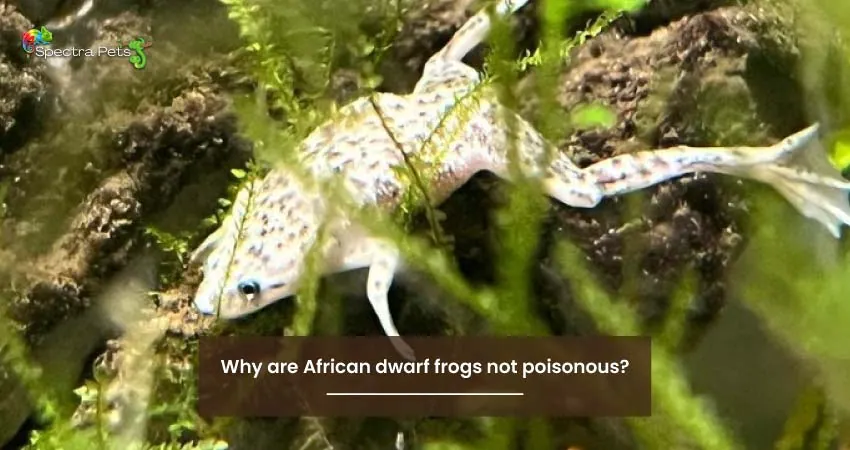
Out in the wild, you will see many frogs that are highly toxic but African dwarf frogs are unique in this case. This frog does not have that special gland that produces toxins to ward off the potential predator. Which makes them poison-free aquatic frogs.
Is there any risk of touching an African dwarf frog?
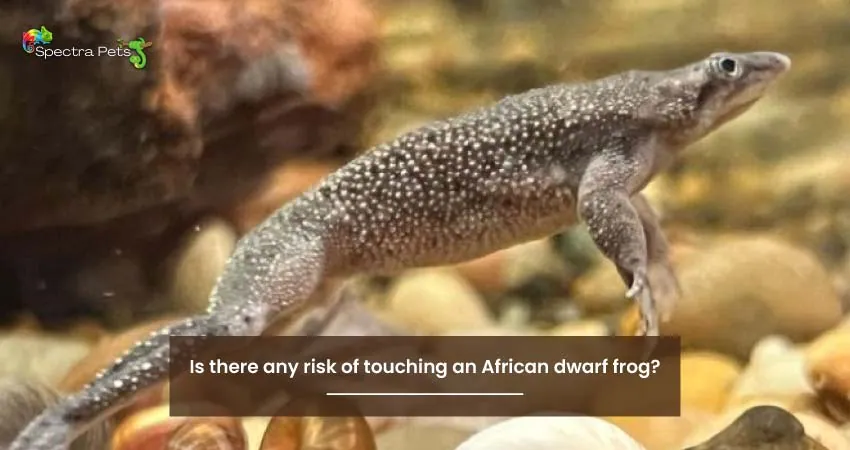
It’s impossible to say that a frog is free from salmonella. Salmonella is a type of harmful bacteria that can easily enter the African dwarf frog’s body. It can cause health issues like diarrhea, high fever, and stomach pain in humans though it has no effect on the frog’s health.
Like any other amphibian, African dwarf frogs can carry salmonella which can be very dangerous for a specific group of people.
People with low immune systems like old people, babies/toddlers, diabetes patients, cancer patients, or people with autoimmune diseases. If this group of people gets affected by salmonella then there can be major health issues.
So it’s recommended to use a pair of gloves before handling these magnificent creatures even though they are in captivity.
Can you get sick from an African dwarf frog?
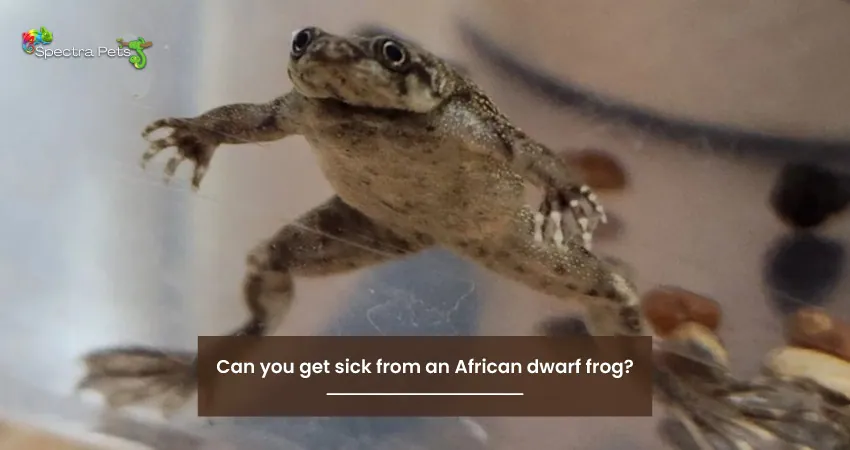
There’s a high chance you might become sick if salmonella is transmitted to your body from the African dwarf frog. Even from touching their water tank or poop you can become sick.
Though in most cases, it’s not a big deal and you may have diarrhea, and vomit and then you will become fine again. As I said earlier, unless you fall into the category of vulnerable people, you can’t fall to your deathbed if you touch an African dwarf frog that’s carrying salmonella.
Can African dart frogs make the tank water polluted with toxins?
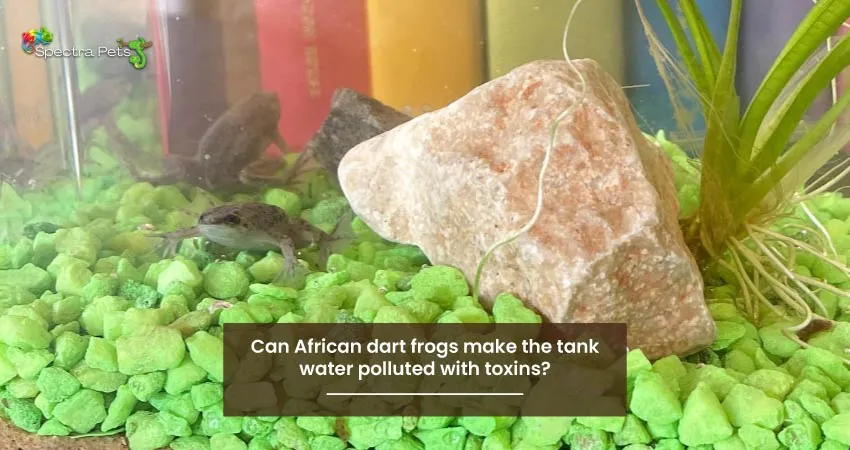
No, this aquatic frog species do not produce any kind of toxin so there is no chance of making the water polluted with toxins.
The only thing you need to be careful of is the presence of salmonella as they can stay in tank water.
What is the effect of biting an African dwarf frog?
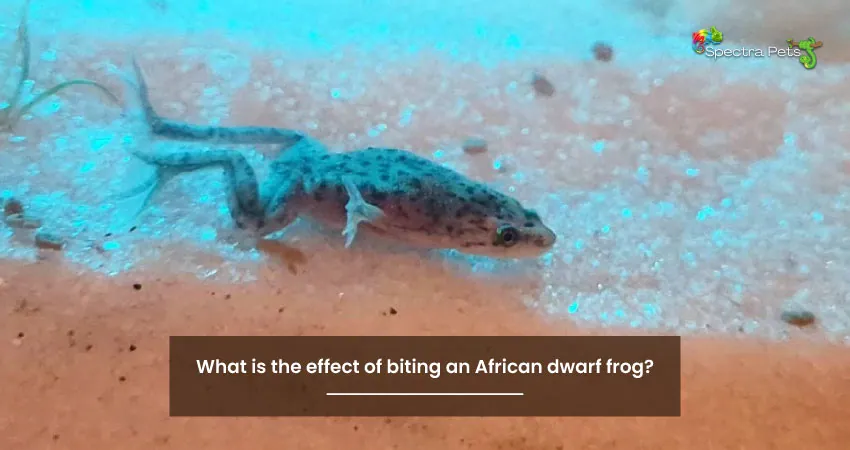
The biting of a dwarf frog would have little or no effect on you as it does not pass any toxin through its biting.
In addition to that, they don’t have teeth so even if they bite it won’t be harmful to your body.
Final words
As a beginner, you will love getting an African dwarf frog. And since they’re non-lethal, you have no reason to worry about poison.
Let me give you one last reminder, just be careful about washing hands after & before touching them. And if you’re vulnerable to diseases, better use a glove.

